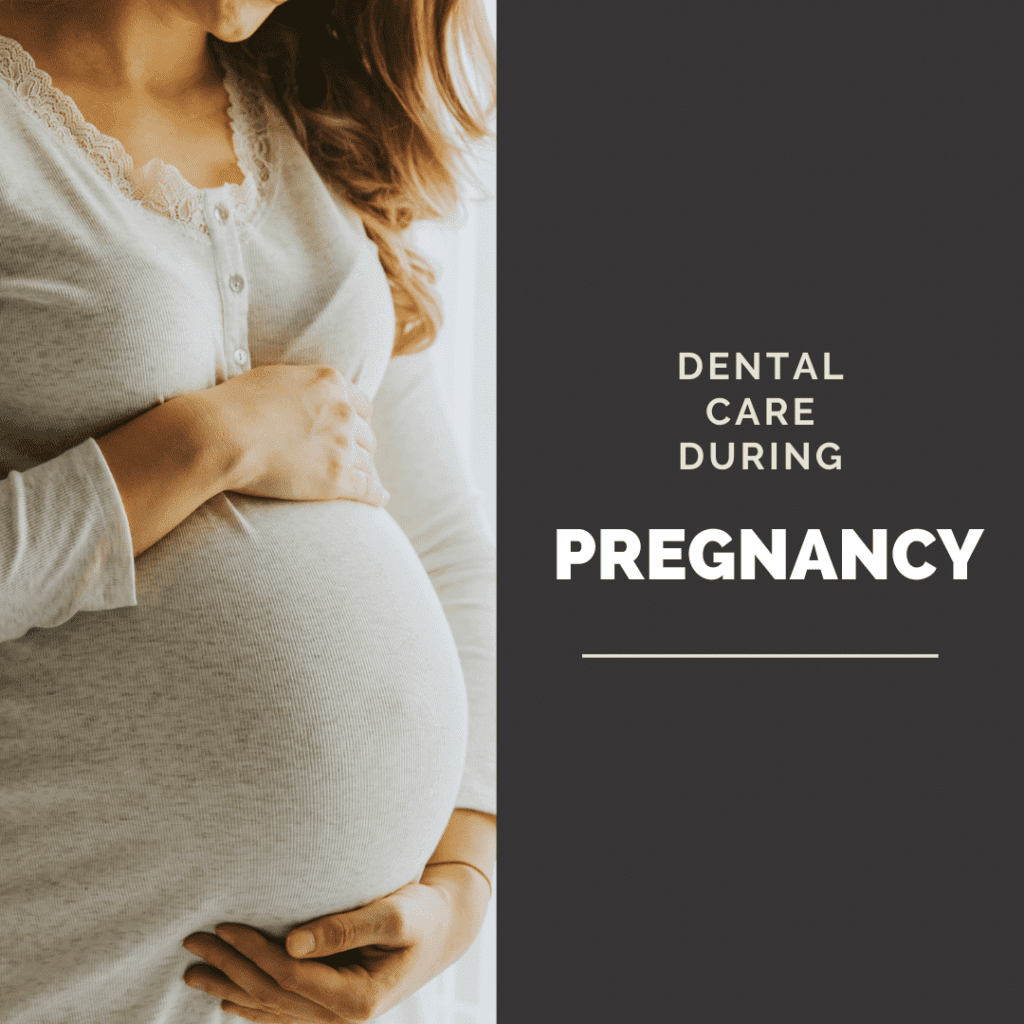
For many women, pregnancy is a time of great joy and excitement. However, it is also usually filled with a variety of doctor’s appointments to make sure that both mama and baby stay healthy and receive the nutrients they both need. While many women know the importance of prenatal medical care, not as many know about the importance of prenatal dental care. Just as it is important to see your OBGYN regularly so that they can carefully monitor yours and the baby’s health, it is also important to see your dentist during pregnancy as well.
Since most people don’t automatically associate pregnancy with dental visits, you are likely wondering just why regular dental visits should be an integral part of your pregnancy. Simply stated, this is because pregnant women are at a higher risk of developing dental issues, some of which can be detrimental to your unborn baby. This increased risk occurs as a result of the various hormonal changes associated with pregnancy.
During pregnancy, both estrogen and progesterone levels increase drastically. Higher amounts of estrogen is essential for forming blood vessels in the uterus and placenta, facilitating the transfer of nutrients to the fetus, and for supporting the growing fetus. Progesterone is another essential hormone that is used by the body to promote ligament laxity so that the uterus can grow and expand to accommodate the growing fetus. In addition to the increased production of estrogen and progesterone, there are also fluctuations in other hormones such as human chorionic gonadotropin (HCG), relaxin, oxytocin, and prolactin.
While these hormones are essential for pregnancy, they affect other parts of the body like the mouth and have the potential to cause certain dental problems such as:
Pregnancy Gingivitis
The Centers for Disease Control (CDC) estimates that as many as 60-75% of pregnant women are affected by pregnancy gingivitis, which is a mild form of gum disease caused by excess plaque accumulation along the gum line. Although gingivitis can easily be treated with modified oral hygiene and antibiotics, untreated gingivitis has the potential to develop into periodontitis, which is the leading cause of tooth loss in adults. Symptoms of pregnancy gingivitis include:

- Gums that bleed easily while brushing or flossing
- Red, tender, and/or swollen gums
- Bad breath or taste
- Receding gums (teeth may look long)
- Enlarged or deep gum pockets (gums no longer firmly attached to teeth)
Tooth Decay
While pregnancy gingivitis tends to be exceptionally common in pregnant women, tooth decay is not as common and the CDC estimates that it affects 25% of pregnant women. One of the main reasons the risk of tooth decay increases during pregnancy is due to the enamel erosion that occurs as a result of morning sickness. Additionally, pregnancy cravings for sweet or sugary foods can also play a role. Symptoms of tooth decay include:
- Toothache or pain
- Visible pits in the tooth
- Brown, black, or white enamel stains
- Tooth sensitivity to hot, cold, and sweet
- Pain while biting or chewing.
Pregnancy Tumors
Pregnancy tumors are significantly less common than the other aforementioned dental issues and are estimated by WebMD to only affect 10% of pregnant women. These gum tumors, also known as pyogenic granuloma, granuloma of pregnancy, lobular capillary hemangioma, or pregnancy epulis, are non-cancerous, raspberry-like tumors that form during the second trimester of pregnancy. They generally form as a result of excess plaque accumulation and then resolve themselves after the baby is born.
How do these dental issues affect pregnancy?
Now that we’ve discussed the dental issues that are most likely to affect pregnant women, let’s take a look at just how these issues can affect pregnancy. For starters, it is important to note that the relationship between oral health and pregnancy is still being researched. Nevertheless, the American Dental Association (ADA) has noted that the aforementioned dental issues have been associated with premature delivery, intrauterine growth restriction, gestational diabetes, and preeclampsia. For these reasons, it is important to receive regular dental care during pregnancy to ensure you maintain good oral health while pregnant.




